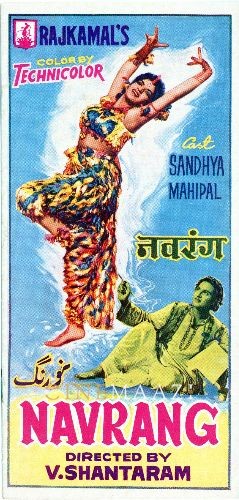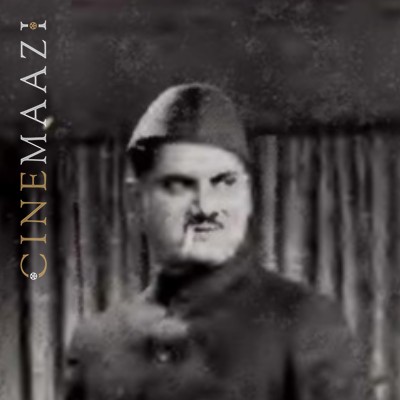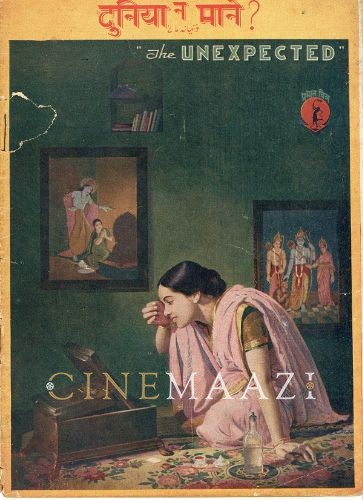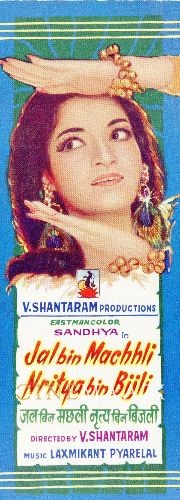This section is for paid subscribers only. Our subscription is only $3700/- for one full year.
You get unlimited access to all paid section and features on the website with this subscription.
Subscribe to read full article
This section is for paid subscribers only. Our subscription is only $37/- for one full year.
You get unlimited access to all paid section and features on the website with this subscription.
Not ready for a full subscription?
You can access this article for $2, and have it saved to your account for one year.
- Release Date18/09/1959
- GenreDrama, Romance
- FormatColour
- LanguageHindi
- Run Time157 mins
- Length4827.42 meters
- Gauge35 mm
- Censor RatingU
- Censor Certificate NumberU-28197-MUM
- Certificate Date04/09/1959
In the last days of the eighteenth century when one by one the kingdoms of various states in India were falling to the British there lived in one small independent state a poet called Navrang. He was married to Jamuna, a shy plain, but devoted woman and they lived with Navrang's father and sister Uma. One day when Navrang's father brought a set of lovely clothes for his daughter-in-law. Navrang was keen that his wife should put the clothes on and fulfill his desire to be the most attractive woman in the world. But she did not accede to his requests. The more he tried to induce her, the more she was adamant not to oblige him. In fact at night, she went to his sister's room to sleep and did not respond to his call when he comes to wake her up.
Just at that moment, Navrang heard a knock on the door and saw a woman dressed in the clothes brought by his father. The girl, Mohini was all that he desired his wife to be.
In fact, Mohini was the product of Navrang's imagination. She became his inspiration for the poetry. His father secured for him a job in the king's court. And though his love for Mohini was misunderstood by his family and his wife, it won for him great honour. For his 'Holi' song proved so popular that the king appointed him as the court poet. And the court singer Manjri sang his songs. But his heart pined for love of his wife and acceptance by his family.
During this period, the British took away the neighbouring kingdom and the prince negotiated for a new treaty with the British with the result of the king's disappointment leading to his death. It was at the tragic hour, Navrang became a father of son. Navrang was called to sing the court in the presence of the British Officers who had installed the prince as the king. Instead of praising the British, Navrang sang patriotic song attacking the British. As a result, Navrang lost his job.
Poverty haunted the family. His relations with the wife were strained and she felt him with the son. He secured money from Manjri for the family. He searched for Jamuna and found that Jamuna did not want money but love and understanding. He went to Jamuna's house but her father refused to send her back with him. Back home, he found his father dead. Forelorn he lost all interest in life. Only Manjri knew the cause of his misery. So when he could not sing in the court, she came with Jamuna. And the appearance of Jamuna revived his poetry. He sang a new song which held the audience spell bound. Jamuna realised that she was her husband's true inspiration.
The lovers were re-united. But they had to live on a pittance after the Britsh took over the kingdom. For Navrang could never sing songs in praise of the new masters.
(From the official press booklet)

Cast
Crew
-
BannerRajkamal kala mandir, Bombay
-
Director
-
Music Director
-
Lyricist
-
Story Writer
-
Cinematography
-
Editing
-
Sound Recording/ Audiography
-
Make-up
-
Music Company
-
Art Direction















.jpg)



